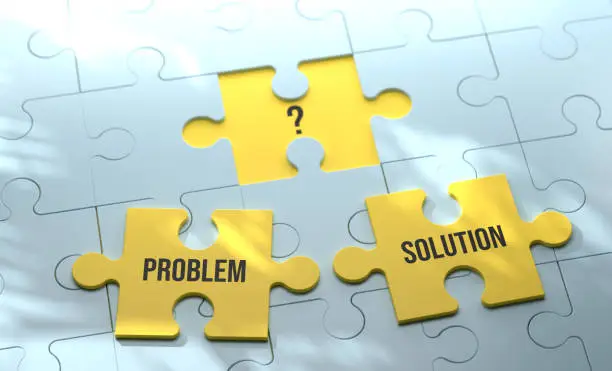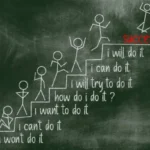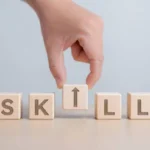Introduction
Ever found yourself stuck on a tricky problem and wished you had the magic formula to fix it? Whether it’s a work dilemma, a personal challenge, or a technical glitch, problem-solving skills are essential in navigating life’s hurdles. The good news? You can build problem-solving skills that last a lifetime — it’s not just something you’re born with. In this article, we’ll walk through everything you need to know to become a confident problem solver, ready to tackle anything life throws your way.
Understanding Problem-Solving Skills
At its core, problem-solving is the ability to identify, analyze, and find solutions to challenges. These challenges come in many forms — from simple daily decisions like “What should I eat?” to complex business issues like “How do we increase our market share?” Understanding this skill is key to mastering it.
Problem-solving isn’t just about quick fixes; it’s a lifelong skill that adapts with experience and knowledge. And the better you get, the more efficient and creative your solutions become.
The Psychology Behind Problem-Solving
Ever wondered how your brain reacts when you face a problem? It’s like an internal detective, trying to gather clues and piece together the mystery. Problem-solving activates both critical thinking and creativity — two sides of the same coin.
But watch out for cognitive biases, like confirmation bias, which can cloud judgment. Being aware of these mental traps helps you stay objective and open-minded.
Key Components of Effective Problem-Solving
Breaking down a problem into steps makes it manageable:
- Identify the problem clearly. Don’t rush. Ask yourself: What exactly is the issue?
- Gather information. Collect facts, opinions, and data.
- Generate possible solutions. Don’t censor ideas; creativity thrives here.
- Evaluate solutions. Weigh pros and cons, risks, and benefits.
- Implement the best solution. Take action, then review to learn what worked.
Developing a Problem-Solving Mindset
Here’s the secret sauce — mindset. People who see problems as opportunities to grow tend to solve them better. Building resilience means bouncing back from failures and staying patient when solutions take time.
Curiosity is your best friend. The more you ask why and explore new ideas, the sharper your skills become.
Techniques to Improve Problem-Solving Skills
Try these tried-and-true methods:
- Brainstorming and Mind Mapping: Get all ideas out visually, no judgment.
- The “5 Whys” Technique: Keep asking why until you reach the root cause.
- SWOT Analysis: Assess Strengths, Weaknesses, Opportunities, and Threats for any situation.
- Role-playing: Put yourself in others’ shoes to understand different angles.
Building Problem-Solving Skills Through Daily Habits
Consistency is key. Incorporate these habits:
- Reflect on your day: What problems did you face? How did you respond?
- Take on small challenges: Push your limits gradually.
- Engage in puzzles or strategy games: Chess, Sudoku, or logic puzzles are brain boosters.
- Seek feedback: Learn from what others see in your approach.
Leveraging Technology to Enhance Problem-Solving
We live in a tech world, so why not use tools designed to help?
- Apps like Trello or Notion help organize and break down complex problems.
- Online courses from platforms like Coursera or Udemy sharpen skills with expert guidance.
- Collaboration tools such as Slack and Microsoft Teams foster group problem-solving.
How to Apply Problem-Solving Skills at Work
Top companies like Google and Apple swear by collaborative problem-solving. They encourage diverse teams to bring different perspectives and use data-driven methods to back decisions.
Don’t be afraid to speak up and share ideas. The best solutions often come from teamwork.
Problem-Solving in Relationships and Personal Life
Problem-solving isn’t just professional — it’s deeply personal too. Handling conflicts with empathy and clear communication can solve many relationship issues. Balance emotional intuition with logical thinking to find win-win outcomes.
Common Mistakes in Problem-Solving to Avoid
- Rushing to conclusions: Slow down and analyze first.
- Ignoring other viewpoints: Diverse opinions enrich solutions.
- Overcomplicating problems: Sometimes, simple is best.
How to Measure Your Problem-Solving Growth
Want to see progress? Try these:
- Use self-assessment quizzes regularly.
- Ask for honest feedback from peers or mentors.
- Track your problem outcomes over time to spot improvement.
Role of Mentors and Coaches in Building Skills
A mentor offers experience and guidance, accelerating your growth. They can challenge your thinking, provide honest feedback, and keep you motivated. Finding the right mentor can be a game changer.
Real-Life Success Stories
Consider Thomas Edison — his countless experiments were all part of relentless problem-solving. Entrepreneurs like Elon Musk solve massive industry problems by thinking big and testing boldly. Their stories remind us that persistence and creativity pay off.
Conclusion
Building problem-solving skills is like planting a tree — it takes time, care, and consistent effort. But the fruits? Confidence, resilience, and a sharp mind that can navigate any challenge. Start small, stay curious, and watch your problem-solving superpowers grow!
FAQs
Q1: What is the best way to start improving problem-solving skills?
Start by identifying small problems in your daily life and practice breaking them down methodically before acting.
Q2: Can problem-solving skills be learned at any age?
Absolutely! The brain is adaptable, and with practice, anyone can improve these skills regardless of age.
Q3: How important is creativity in problem-solving?
Creativity fuels innovation — it helps you see solutions beyond the obvious, making it crucial for effective problem-solving.
Q4: What are some daily exercises for sharpening problem-solving?
Try puzzles, journaling reflections on problems faced, or practicing the “5 Whys” technique on small challenges.
Q5: How do I stay motivated when facing tough problems?
Focus on the growth opportunity each challenge presents, and celebrate small wins along the way to keep your momentum.





